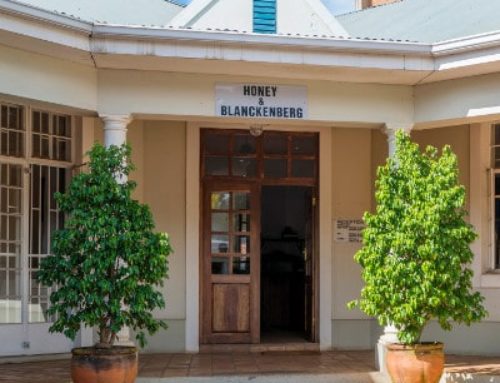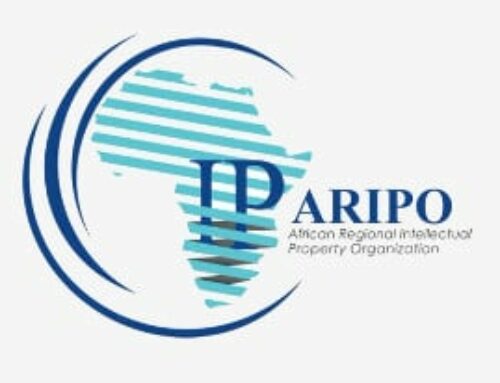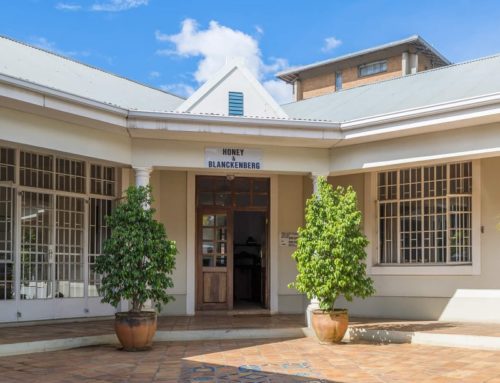KEY HIGHLIGHTS
- Seychelles is a new Contracting Party to the Harare Protocol on Patents and Industrial Designs and may be designated in ARIPO applications with effect from 1 January 2022.
- The applicant in a patent application may, in response to an objection by a designated state, amend the application and/or submit written argument in a bid to overcome the objection.
- The term of an ARIPO industrial design has been increased from 10 years to 15 years for designs registered in the Office as from 1 January 2022.
- The deadline for requesting substantive examination of a patent application filed in ARIPO is 3 years calculated from the filing date, or where priority has been claimed 3 years from the earliest priority date.
The ARIPO Administrative Council adopted various amendments to the Harare Protocol on Patents and Designs as well as the Implementing Regulations which came into force on 1 January 2022.
LIST OF CONTRACTING STATES
The Harare Protocol came into force with respect to Seychelles on 1 January 2022. This means that an ARIPO application filed on or after 1 January 2022 may designate Seychelles as a Contracting State. Similarly, any international application filed under the Patent Cooperation Treaty on or after 1 January 2022 will include Seychelles as a state designated for every kind of regional protection available on entry into ARIPO.
The total number of Contracting States which may now be designated on application for registration of a patent or an industrial design in ARIPO is 19. The total number of Contracting States which may be designated on application for registration of a utility model in ARIPO is only 14 (including Seychelles) because not all ARIPO member states have national utility model laws.
SECTION 2BIS
ARIPO Patent Applications
Section 2bis of the Harare Protocol has been amended to confirm that the assessment on whether an invention has been disclosed in a manner sufficiently clear and complete for it to be carried out by a person skilled in the art, shall be determined by an enabling description as read in conjunction with accompanying drawings if any.
SECTION 2QUATER
Observations by Third Parties
A new section 2quater has been introduced which permits any person to present observations concerning the patentability of the invention to which the application for registration of a patent or a utility model has been filed. Third party observations may be made following the publication of the application for a patent or a utility model. That person shall not become a party to the proceedings before the Office by virtue of filing third party observations.
SECTION 3
Patents
Section 3 has been amended to clarify that a designated state has 6 months in which to respond to a notification by the Office that a decision has been made to grant a patent.
A designated state may object to the aforementioned notification on the grounds the invention is not patentable under the provisions of the Harare Protocol or that, because of the nature of the invention, the patent if granted will have no effect under the national law of that state.
Where a designated state has communicated that a patent, if granted by the Office, will not have effect in its territory, the amendment to section 3 permits the applicant to withdraw the application in the designated state and make formal application for the reduction of the states designated in the patent application.
The amendment to section 3 further allows the applicant to respond to the communication by providing amendments/and or arguments in relation to the communication. The applicant’s response to the communication is required to be filed within the prescribed period (which is 3 months from receipt of the communication).
The designated state must in turn respond to the applicant’s response to its communication within the prescribed period (which is 3 months from receipt of the applicant’s response).
If a designated state refuses an application, notwithstanding the applicant’s amendments and/or arguments, the applicant may request that the application proceed in the territory of the designated state as a national application.
SECTION 3TER
Utility Models
Section 3ter has been amended to define the criteria of ‘newness’ and ‘industrial applicability’ as they relate to utility model applications.
A utility model shall be considered new if it is not anticipated by the prior art within the jurisdiction of the Contracting States of the Harare Protocol.
It will be considered susceptible of industrial applicability if it can be made or utilised in any kind of industry including agriculture.
SECTION 4
Industrial Designs
Section 4 has been amended to clarify that a designated state has 6 months in which to respond to notification by the Office that an industrial design application has been filed which complies with prescribed formalities.
A designated state may object to the aforementioned notification on the grounds that the industrial design is not new, or that because of the nature of the industrial design, the registration if granted will have no effect under the national law of that state, or in the case of a textile design, that it is the subject of a special register.
Where a designated state has communicated that an industrial design, if granted by the Office will have no effect in its territory, the amendment to section 4 permits the applicant to withdraw the application in the designated state and make formal application for the reduction of the states designated in the industrial design application.
The amendment to section 4 further allows the applicant to respond to the communication by providing amendments/and or arguments in relation to the communication. The applicant’s response to the communication is required to be filed within the prescribed period (which is 3 months from receipt of the communication).
The designated state must in turn respond to the applicant’s response to its communication within the prescribed period (which is 3 months from receipt of the applicant’s response).
If a designated state refuses an application, notwithstanding the applicant’s amendments and/or arguments, the applicant may request that the application proceed in the territory of the designated state as a national application.
Section 4(6) of the Harare Protocol has been amended so as to increase the term of an industrial design from 10 years to 15 years from the filing date.
Where the national law of a designated state provides for a shorter term of protection, the ARIPO design registration in that state will expire at the end of the term prescribed in the national law.
Where an industrial design was registered before the commencement of the amendment on 1 January 2022, the term of the industrial design shall be the registration term provided before the amendment.
REGULATIONS FOR IMPLEMENTING THE HARARE PROTOCOL
RULE 3
Inspection of files
Where an application is withdrawn before publication, the file relating to it may only be inspected with the consent of the person who withdrew the application.
RULE 7bis.1(e)
Definition
The definition of “plant variety” has been amended to provide that a plant grouping within a single botanical taxon of the lowest rank includes what can be considered as a unit with regard to its suitability for being propagated unchanged.
RULE 11BIS
Additional fee and claim fee
The Rule has been amended so as to clarify the basis on which the additional fee for an application which comprises more than 30 pages is calculated. The additional fee is calculated on the basis of the pages of the description, claims, any drawings and the abstract. The pages forming part of a sequence listing shall not be counted provided the sequence listing complies with WIPO Standard ST.25.
If the claim fee for claims in excess of 10 is not paid on or before the deadline for requesting substantive examination, the 11 th and subsequent claims shall be deemed to be withdrawn.
If an amendment filed after payment of additional fee or claims fee introduces more pages and claims, the fees for the additional pages and claims shall be paid at time of paying grant and publication fees.
RULE 15BIS
Time Limits
Where applicant has received notice that an application does not comply with the formal and physical requirements for applications, or that it does not meet the criteria for patentability, the applicant may request the Office to reconsider the application within 2 months and no more than 6 months after date of communication of the ARIPO Office refusal of the application.
RULE 15ter
Extension of Time Limits
The Rule has been amended to include as a ground for extension of time limits an exceptional occurrence such as a pandemic, a natural disaster, war, civil disorder or a general breakdown in any means of electronic communication.
RULE 18
Examination as to Substance
We earlier reported that in terms of amended Rule 18(1)(a) and the current amended Rule 23(2) and Rule 23(2)(d), the time frame within which Applicants may request substantive examination of ARIPO is up to 31 months calculated from the filing date or where priority has been claimed, 31 months from the earliest priority date. However, ARIPO has now confirmed that amended Rule 23(2)(d) should be disregarded pending rectification of the misleading amendment. Amended Rule 23(2)(d) is in conflict with Section 3(3) of the Harare Protocol.
The ARIPO Office has confirmed that the time frame within which applicants may request substantive examination of ARIPO patent applications is up to 3 (three) years from the date of filing or from the priority date, if claimed, whichever is the earlier event. Where the priority of more than one corresponding application is claimed, the time frame for requesting substantive examination of the ARIPO patent application shall be calculated from the date of the earliest priority claimed.
The request shall be deemed to have been filed when the request for examination fee including the additional fee and claims fee if any has been lodged.
Where no request is made within the prescribed period, the application shall be deemed to have lapsed.
A new Rule 18(b), concerning voluntary amendments made after a search report and/or examination report has been communicated to the applicant, has been inserted into the Harare Protocol.
Where the applicant amends a patent application in response to an Office action that raises objections or requirements for corrections, each amendment may only be incorporated in the application through a written examination report consenting to such amendment by the Office.
Amended claims after a search report and/or an examination report is communicated to the applicant, may not relate to unsearched subject matter which does not combine with the originally claimed invention or group to form a single general inventive concept.
The introduction of unsearched and/or unexamined claims shall be allowable subject to payment of new search and examination fees.
Voluntary amendments after an application had been recommended for grant by the Office shall be considered under section 5ter of the Harare Protocol as a request for limitation or a post-grant amendment.
Where a designated state communicates that a patent shall have no effect in its territory, the applicant may respond within 3 months of receipt of the communication.
The designated state shall respond to the applicant’s communication within 3 months of receipt of the communication.
The previous provision for expedited examination of a patent application permitted a request for expedited examination subject to the application not being abandoned. Rule 18 has been amended to make such request conditional on the application not being withdrawn and then reinstated before conclusion of examination.
A request for delayed commencement of examination up to 1 year may be sought for a patent application subject to the application not being deemed withdrawn due to non-payment of annual maintenance fees.
The amendment to Rule 18 provides further that the Office will consider applications for modification of the timelines for examination of patent applications where the invention relates to fields of green technologies as defined in the Administrative Instruction.
RULE 18ter
Examination of Utility Model as to Substance
The previous provision for expedited examination of a utility model application permitted a request for expedited examination subject to the application not being abandoned. Rule 18ter has been amended to make such request conditional on the application not being withdrawn and then reinstated before conclusion of examination.
A request for delayed commencement of examination up to 1 year may be sought for a utility model application subject to the application not being deemed withdrawn due to non-payment of annual maintenance fees.
The amendment to Rule 18ter provides further that the Office will consider applications for modification of the timelines for examination of utility model applications where the invention relates to fields of green technologies as defined in the Administrative Instructions.
RULE 18quater
Examination of an Industrial Design as to Substance
Where a designated state communicates that an industrial design shall have no effect in its territory, the applicant may respond within 3 months of receipt of the communication.
The designated state shall respond to the applicant’s communication within 3 months of receipt of the communication.
RULE 19ter
Observations by Third Parties
The new Rule 19ter now provides for any person to submit observations concerning the patentability of an invention.
The observations may be considered by the Office if they relate to novelty, inventive step, claim clarity, sufficiency of disclosure, patentability of subject matter and unallowable amendments. The observations shall include a statement of the grounds on which they are based.
Third party observations, if not filed anonymously, shall receive an acknowledgment of receipt. The Office is however not required to notify the third party of any further action taken in response to such observations.
The ARIPO Office shall make every effort where the observations are substantiated to communicate such observations to applicant in the next office action.
Where third party observations are received by the Office after the decision to grant/refuse an application, the observations shall be included in the ARIPO file without taking note of their content.
Third party observations are to be filed in English preferably in electronic form. Documentary evidence may be filed in any language. It must however be translated into English within a period to be specified, otherwise the evidence shall be disregarded.
RULE 23
International applications
We earlier reported that Rule 23 had been amended to provide that the applicant shall within 31 months from the date of filing or, if priority has been claimed from the earliest priority date, file the request for substantive examination.
The ARIPO Office has confirmed that the time frame within which applicants should request substantive examination of ARIPO patent applications is up to 3 (three) years from the date of filing or from the priority date, if claimed, whichever is the earlier event and not 31 months from the earliest priority date as stipulated under Rule 23(2)(d).
The applicant in an international application is further required to indicate whether the ARIPO grant procedure is to be based on the patent documents as originally filed or as amended.
SCHEDULE OF FEES
Schedule 1
Industrial Designs
The table of official fees for industrial designs has been amended to list the new annual maintenance fees in respect of the 10th to 14th anniversary as follows:
| Scheduling of fees | Amount (USD) |
|---|---|
| 10th anniversary | 36 |
| 11th anniversary | 42 |
| 12th anniversary | 48 |
| 13th anniversary | 54 |
| 14th anniversary | 60 |
Harare, February 2022
Sara Moyo
Senior Partner
Intellectual Property
All rights reserved


